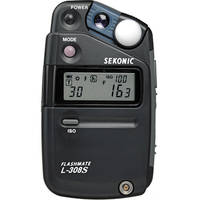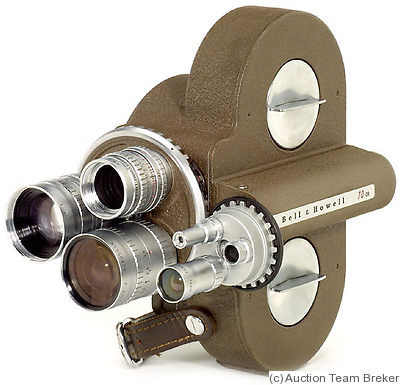Film School Chronicles: Part 2
Unknown
19:18
2014
,
acting
,
film school
,
film school chronicles
,
filmmaking
,
independent filmmaking
,
lessons in film
,
nofilmschool
,
ryerson university
,
screenwriting
,
summer film school
No comments
The last time I did a film school post was two weeks ago! I apologize for the big break in posts but it's called an intensive for a reason. I've had some requests to write about my program at Ryerson (Summer Film School) and will be breaking it down to the classes I've attended. |
| Ryerson's Sound Stage |
Motion Picture Production:
 The last two weeks consisted of filming our first assignment, a 30 second documentary style film with a still camera. The equipment? A Bell & Howell 16mm. This thing has got a parallax lens, what does that mean? It means when you look through the lens you don't see what's going to be on the film!
The last two weeks consisted of filming our first assignment, a 30 second documentary style film with a still camera. The equipment? A Bell & Howell 16mm. This thing has got a parallax lens, what does that mean? It means when you look through the lens you don't see what's going to be on the film!Crazy, I know. As a digital age millenial, I had a lot of trouble wrapping my mind around this. We actually had to use a tape measure to check the distance from the lens to the subject, adjusting it manually. Then we had to use a light metre to manually measure the aperture and f-stop.
This was definitely a learning experience, once we developed the film we saw our mistakes, our out of focus shots or over/underexposed shots. Now this may be an archaic way to produce films but the images were beautiful! I would say I have a love-hate relationship with film but I am excited to create more projects using the medium.
So, here is some recommended readings/viewings from our MOPRO class:
 |
| No electricity needed, just wind and go! |
- "Toward True Cinema" - Vorkapich Theory - we are currently learning about film history and now examining experimental film and using the medium not just as a way to reproduce theatre or photography but as a way to play with motion and emotion. Salvko Vorkapich is who we are studying and modelling our assignment #2 after.
*unfortunately I cannot find the article online but look it up for one of the founding articles of avant garde cinema
- "Meshes in the Afternoon" (Vimeo) - Maya Deren is one of the founders of experimental/personal film. We watched this in class yesterday and were all stunned by the in-camera effects, Freudian themes and eerie storytelling.
- "Stages of Production & Personnel" (PDF) - Some film school information about the basics on a production.
Film Technology I:
This has been a really fun and hands on class, every time we are in it we go to the soundstage and learn practical applications for on-set. The last two weeks we went over film editing, which I would love to write more about but to put it simply: cutting and taping together film to make a movie. Yes, actually.
We also went over lighting in the last class. We were shown various lights, going over warm/cold, amps/wattage, what certain lights would be used in certain scenes (ex. a cigarette/dash light for scenes in the car). The lights we were shown for the modern filmmaker are Kino Flo lights.
One of the most interesting things about attending film school in this day and age is seeing the mesh of past and present, we were shown the old tungsten lights that have now transitioned to LED lights that can be adjusted for daylight or indoor lighting.
And lastly, one of the great learning experiences was our Q&A with a CBC Producer/Exec who was really encouraging about being an artist but also realistic about funding for filmmakers. She provided a great list of areas we can get funding from for our films (BravoFACT, Canada Council for the Arts, Telefilm) and answered our questions about projects we wanted to produce and the legalities behind production.
Film & Sound Editing:
Film and Sound Editing is a super hands on, practical course. We are given rushes for a film/tv series and instructed to use Adobe Premiere CS6 to edit the clip down. My finished clip is below, we get marked on this.
Our second assignment is all about sound editing and inputting sound effects, ambience and voice overs into a clip. We were given "Sin City" and have to record our own VO for Mickey Rourke and adjust all the sound effects. Just starting on that one and it's a doozy!
My finished X-Files Editing Assignment here:
Screenwriting:
We've gone over the basics of screenwriting such as formatting and the three act structure. The next topic was 'Writing Funny'. This is where our teacher went on to discuss what makes us laugh (pain/truth) and showed us various clips from comedic movies/shows.
An exercise I really enjoyed was one where he talked about the 9-1 rule, where for every ten ideas you have, one will be good. We went through the class and read out 10 names we came up with for a sports team, some flopped but some were surprise hits!
The thing I really enjoyed about that was getting the fear of failure out of the way, because the only thing holding you back from writing anything is fear.
Other topics we covered were the One Page Synopsis for Film and Loglines.
All in all, film school is proving to be intensive, exhausting and educating. There are a lot of things you can teach yourself using the internet or books and there are a lot of frustrating moments where I ask "What am I paying for?".
But then that would be the wrong attitude because, like life, you get what you put in. So far I have been immersed in the film world and even if I did know some of the things before, now I am more acquainted with the theory or technical side. Also, it's only been three weeks and the knowledge that is crammed in my head is worth the dollar bills that have been dropped on this program - if not just getting to play with all those shiny cameras ;-)
This has been a really fun and hands on class, every time we are in it we go to the soundstage and learn practical applications for on-set. The last two weeks we went over film editing, which I would love to write more about but to put it simply: cutting and taping together film to make a movie. Yes, actually.
We also went over lighting in the last class. We were shown various lights, going over warm/cold, amps/wattage, what certain lights would be used in certain scenes (ex. a cigarette/dash light for scenes in the car). The lights we were shown for the modern filmmaker are Kino Flo lights.
One of the most interesting things about attending film school in this day and age is seeing the mesh of past and present, we were shown the old tungsten lights that have now transitioned to LED lights that can be adjusted for daylight or indoor lighting.
And lastly, one of the great learning experiences was our Q&A with a CBC Producer/Exec who was really encouraging about being an artist but also realistic about funding for filmmakers. She provided a great list of areas we can get funding from for our films (BravoFACT, Canada Council for the Arts, Telefilm) and answered our questions about projects we wanted to produce and the legalities behind production.
Film & Sound Editing:
Film and Sound Editing is a super hands on, practical course. We are given rushes for a film/tv series and instructed to use Adobe Premiere CS6 to edit the clip down. My finished clip is below, we get marked on this.
Our second assignment is all about sound editing and inputting sound effects, ambience and voice overs into a clip. We were given "Sin City" and have to record our own VO for Mickey Rourke and adjust all the sound effects. Just starting on that one and it's a doozy!
My finished X-Files Editing Assignment here:
Screenwriting:
We've gone over the basics of screenwriting such as formatting and the three act structure. The next topic was 'Writing Funny'. This is where our teacher went on to discuss what makes us laugh (pain/truth) and showed us various clips from comedic movies/shows.
An exercise I really enjoyed was one where he talked about the 9-1 rule, where for every ten ideas you have, one will be good. We went through the class and read out 10 names we came up with for a sports team, some flopped but some were surprise hits!
The thing I really enjoyed about that was getting the fear of failure out of the way, because the only thing holding you back from writing anything is fear.
Other topics we covered were the One Page Synopsis for Film and Loglines.
All in all, film school is proving to be intensive, exhausting and educating. There are a lot of things you can teach yourself using the internet or books and there are a lot of frustrating moments where I ask "What am I paying for?".
But then that would be the wrong attitude because, like life, you get what you put in. So far I have been immersed in the film world and even if I did know some of the things before, now I am more acquainted with the theory or technical side. Also, it's only been three weeks and the knowledge that is crammed in my head is worth the dollar bills that have been dropped on this program - if not just getting to play with all those shiny cameras ;-)
Subscribe to:
Post Comments
(
Atom
)

 I've always been a troublemaker, now I'm on my journey to being an independent filmmaker. I started out my film career as an actress but have discovered a voice and love of creating movies. What's a better job than making things from your imagination?
I've always been a troublemaker, now I'm on my journey to being an independent filmmaker. I started out my film career as an actress but have discovered a voice and love of creating movies. What's a better job than making things from your imagination?
No comments :
Post a Comment